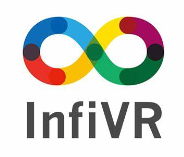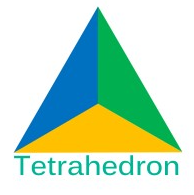
1. Simulanis:

| Aspect | Details |
|---|---|
| Startup Name | Simulanis |
| Headquarter | Delhi, India |
| Founder | Raman Talwar |
| Founded | 2013 |
| Funding | USD 1M |
| Products | Remote Assist, Reflexis, Sanalexa |
| Specialization | AR solutions for field force productivity, education, and industrial training |
| Awards | Multiple awards in the ed-tech industry |
Simulanis is a leading augmented reality startup in India, providing innovative AR-based solutions aimed at enhancing field force productivity. Founded in 2013 by Raman Talwar and headquartered in Delhi, Simulanis has developed a suite of products including Remote Assist, Reflexis, and Sanalexa. The company is renowned for its contributions to education and industrial training through the use of augmented, mixed, and virtual reality technologies. Simulanis’ dedication to improving productivity and training efficiency has earned it multiple awards and recognition in the ed-tech industry.
2. Gophygital:

| Aspect | Details |
|---|---|
| Startup Name | Gophygital |
| Headquarter | Mumbai, India |
| Founder | Ninad Chaaya |
| Founded | 2016 |
| Specialization | Mixed reality solutions |
| Products | Immersive and experiential applications |
| Industry Focus | Various industries including training, development, marketing |
| Key Strength | Blending physical and digital worlds for interactive experiences |
Gophygital is an innovative augmented reality startup based in Mumbai, founded by Ninad Chaaya in 2016. The company specializes in providing mixed reality solutions that deliver immersive and experiential experiences to clients across various industries. Gophygital’s expertise lies in blending physical and digital worlds to create interactive and engaging applications. Their solutions are designed to enhance customer engagement, improve training and development programs, and offer unique marketing tools. Gophygital continues to push the boundaries of AR technology, making significant strides in the industry.
3. InfiVR:

| Aspect | Details |
|---|---|
| Startup Name | InfiVR |
| Headquarter | Bangalore, India |
| Founded | 2018 |
| Specialization | AR, VR, and MR solutions |
| Industry Focus | Aviation, aerospace, healthcare, pharmaceuticals, automobiles |
| Key Strength | Enhancing human capabilities with affordable AR/VR technologies |
| Approach | Technology as an extension of human intelligence and capabilities |
InfiVR, headquartered in Bangalore and founded in 2018, offers cutting-edge augmented reality, virtual reality, and mixed reality solutions. The company focuses on enhancing human capabilities rather than replacing them, providing novel solutions to core issues across sectors like aviation, aerospace, healthcare, pharmaceuticals, and automobiles. InfiVR aims to make AR and VR technologies accessible and affordable, enhancing productivity and efficiency for its clients. Their innovative approach positions them as a key player in the Indian AR landscape.
4. Quy Technologies:

| Aspect | Details |
|---|---|
| Startup Name | Quy Technologies |
| Headquarter | India |
| Founded | 2010 |
| Specialization | AR, VR, and MR solutions |
| Industry Focus | eCommerce, healthcare, retail, real estate, entertainment, education, manufacturing |
| Global Reach | U.S., UK, Canada, UAE, Europe |
| Key Strength | Enhancing digital footprints |
| Projects Delivered | Over 350 |
Quy Technologies, founded in 2010, is a prominent AR startup based in India, providing mobile app development services with a strong emphasis on augmented reality, virtual reality, and mixed reality applications. The company serves a global clientele, including markets in the U.S., UK, Canada, UAE, and Europe. Quy Technologies focuses on enhancing digital footprints in sectors such as eCommerce, healthcare, retail, real estate, entertainment, education, and manufacturing. With over 350 successful projects, Quy Technologies is known for its expertise in delivering innovative AR solutions.
5. Trezi:

| Aspect | Details |
|---|---|
| Startup Name | Trezi |
| Headquarter | Noida, Uttar Pradesh, India |
| Founder | Gautam Tewari |
| Founded | 2014 |
| Funding | $2 million (2020) |
| Specialization | Immersive virtual reality for architecture and design |
| Products | Design presentations, real-time marketing communications |
| Key Strength | 3D modeling software for interactive architectural showcases |
Trezi, founded by Gautam Tewari in 2014, is an AR software company headquartered in Noida, Uttar Pradesh. Specializing in immersive virtual reality for the architecture and design industries, Trezi allows architects to showcase building plans using 3D modeling software. This innovative platform enhances design presentations and real-time marketing communications, providing clients with a comprehensive and interactive experience of architectural designs. With a funding of $2 million secured in 2020, Trezi is a leading player in the AR startup landscape in India.
6. SmartVizX:

| Aspect | Details |
|---|---|
| Startup Name | SmartVizX |
| Headquarter | Noida, Uttar Pradesh, India |
| Founders | Gautam Tewari, Tithi Tewari |
| Founded | 2015 |
| Funding | $3 million (2020) |
| Specialization | Interactive virtual environments for the AEC industries |
| Products | ArchViz, ArchVizM, 360-VIZ, ViViz, ViVizM, ViVizVR |
| Key Strength | Enabling clients to visualize unbuilt spaces for enhanced project planning |
SmartVizX, founded by Gautam Tewari and Tithi Tewari in 2015, is a leading AR startup headquartered in Noida, Uttar Pradesh. The company specializes in creating interactive virtual environments for the architecture, engineering, and construction (AEC) industries. SmartVizX’s innovative solutions, such as ArchViz, ArchVizM, 360-VIZ, ViViz, ViVizM, and ViVizVR, enable clients to experience and visualize spaces that have not yet been physically built. With $3 million in funding secured in 2020, SmartVizX is revolutionizing the way real estate and design industries approach project visualization.
7. Kalpnik:

| Aspect | Details |
|---|---|
| Startup Name | Kalpnik |
| Headquarter | Noida, Uttar Pradesh, India |
| Founders | Apul Nahata, Ashwani Garg, John Kuruvilla |
| Founded | 2016 |
| Funding | $526K |
| Specialization | Immersive experiences for religious and spiritual places |
| Products | VRDevotee |
| Key Strength | Enhancing spiritual and religious experiences through AR |
| Downloads | Over 127,000 |
Kalpnik, founded by Apul Nahata, Ashwani Garg, and John Kuruvilla in 2016, is an innovative AR startup based in Noida, Uttar Pradesh. The company specializes in creating immersive experiences for religious and spiritual places through its product, VRDevotee. Available on both Android and iOS platforms, VRDevotee allows users to experience remote places and events virtually, with over 127,000 downloads to date. With $526K in funding, Kalpnik continues to enhance the spiritual and religious experience through augmented reality.
8. Jadooz:

| Aspect | Details |
|---|---|
| Startup Name | Jadooz |
| Headquarter | India |
| Founders | Rahul Nehra, Shobana Chandrakumar |
| Founded | 2017 |
| Specialization | Virtual reality cinema theaters and entertainment |
| Products | VR cinema theaters, gaming pods, cafes |
| Key Strength | Combining VR with traditional cinema and gaming |
Jadooz, founded by Rahul Nehra and Shobana Chandrakumar in 2017, is an innovative startup in India that combines virtual reality with entertainment. Headquartered in India, Jadooz operates a chain of multiplexes offering VR cinema theaters, gaming pods, and cafes. Each Jadooz center provides a 50-80 seater cinema, virtual reality experiences, and VR gaming, creating an immersive entertainment environment. This unique blend of VR and traditional cinema offers a new way for audiences to enjoy films and interactive experiences.
9. Tetrahedron:

| Company Name | Tetrahedron |
|---|---|
| Headquarters | India |
| Industry Focus | Manufacturing, Education |
| Specialization | AR Solutions |
| Key Offerings | Manufacturing process optimization, training simulations, maintenance procedures, interactive education |
| Objective | Enhancing efficiency and learning through AR technology |
Tetrahedron specializes in developing augmented reality solutions tailored for the manufacturing and education sectors. Based in India, Tetrahedron leverages AR technology to improve operational efficiency in manufacturing processes, offering tools for enhanced visualization, training simulations, and maintenance procedures. In the education sector, Tetrahedron provides interactive learning experiences through AR applications, transforming traditional classrooms into immersive environments where students can engage with complex concepts and simulations. By integrating cutting-edge AR technology, Tetrahedron aims to revolutionize both industrial practices and educational methodologies, driving innovation and efficiency across diverse sectors.
10. Imaginate:

| Field | Details |
|---|---|
| Company Name | Imaginate |
| Headquarters | India |
| Industry Focus | Enterprise Software, AR/VR |
| Specialization | Enterprise Collaboration Software |
| Key Offerings | – AR/VR-based enterprise collaboration tools |
| – Remote training solutions | |
| – Visualization of complex data in 3D | |
| – Interactive virtual meetings and presentations | |
| Target Industries | Healthcare, Manufacturing, Education, Retail, etc. |
| Technologies Used | Augmented Reality (AR), Virtual Reality (VR) |
| Objective | Enhancing communication, productivity, and innovation through advanced AR/VR solutions |
| Unique Features | – Real-time 3D collaboration |
| – Immersive training modules | |
| – Global remote access |
Imaginate specializes in enterprise collaboration software utilizing AR and VR technologies. Headquartered in India, Imaginate offers innovative solutions that enhance communication and workflow efficiency within organizations. Their platform integrates augmented and virtual reality to facilitate remote collaboration, training, and visualization of complex data. Imaginate serves a diverse range of industries including healthcare, manufacturing, and education, enabling teams to interact with 3D models and simulations in real-time from anywhere in the world. By leveraging cutting-edge AR/VR capabilities, Imaginate is at the forefront of transforming how enterprises engage and operate, driving productivity and innovation across sectors.
Frequently asked questions (FAQs) and answers about augmented reality startups in India:
1. What are augmented reality (AR) startups?
Augmented reality startups are companies that utilize AR technology to create innovative products, services, or solutions that blend digital content with the real world, enhancing user experiences.
2. What is the significance of AR startups in India?
AR startups in India are significant because they contribute to technological innovation, provide solutions across various industries such as education, healthcare, retail, and entertainment, and help in positioning India as a hub for AR development.
3. What are some notable augmented reality startups in India?
Some notable AR startups in India include:
- Whodat Tech
- PlayShifu
- Scanta
- GridRaster
- FlippAR
- Mirra
- Questerra
- InGage
5. What sectors do these AR startups focus on?
AR startups in India focus on diverse sectors such as:
- Retail: Enhancing shopping experiences through virtual try-ons and interactive displays.
- Education: Augmented learning experiences and interactive educational content.
- Real Estate: Virtual tours and visualization of properties.
- Marketing and Advertising: AR campaigns for engaging brand experiences.
- Healthcare: Training simulations and patient education tools.
- Gaming: AR-based games and immersive entertainment.
6. What are the key technologies used by these AR startups?
AR startups utilize technologies such as computer vision, 3D modeling and rendering, spatial mapping, gesture recognition, and mobile app development frameworks to create their AR solutions.
7. How do AR startups impact businesses in India?
AR startups help businesses by improving customer engagement, enhancing product visualization, providing innovative marketing tools, offering immersive training solutions, and driving operational efficiencies.
8. What challenges do AR startups face in India?
Challenges faced by AR startups in India include technological barriers, high initial development costs, market education about AR benefits, competition from global tech giants, and the need for skilled AR developers.
9. How can businesses collaborate with AR startups?
Businesses can collaborate with AR startups by exploring partnerships for developing custom AR solutions, integrating AR into existing products or services, leveraging AR for marketing campaigns, and investing in AR-driven innovation.
10. What is the future outlook for AR startups in India?
The future looks promising as AR technology continues to evolve, becoming more accessible and integrated into everyday applications. AR startups in India are expected to play a crucial role in shaping the digital transformation across industries.
11. Where can I find more information about augmented reality startups in India?
You can find more information about AR startups in India through their official websites, tech industry publications, startup directories, and by attending tech conferences and networking events focused on augmented reality.
Conclusion:
In conclusion, augmented reality (AR) startups in India are at the forefront of technological innovation, leveraging AR to transform industries ranging from retail and education to healthcare and entertainment. These startups are pioneering solutions that blend digital and physical realities, enhancing user experiences and offering businesses new avenues for engagement and growth.
Despite facing challenges such as technological barriers and intense competition, AR startups continue to thrive by pushing the boundaries of what’s possible with AR technology. They play a pivotal role in India’s tech ecosystem, contributing to economic growth, job creation, and positioning the country as a global hub for AR development.
Looking ahead, the future for AR startups in India appears promising as AR technology becomes more mainstream and accessible. With ongoing advancements in hardware and software capabilities, coupled with increasing market acceptance, AR startups are poised to drive significant innovation and reshape how businesses and consumers interact with technology in the years to come.
Last Updated on: Wednesday, June 19, 2024 5:27 am by News Estate Team | Published by: News Estate Team on Wednesday, June 19, 2024 5:27 am | News Categories: News
About Us: News Estate covers the latest News on Current News, Business, Sports, Tech, Entertainment, Lifestyle, Automobiles, and more, led by Editor-in-Chief Ankur Srivastava. Stay connected on Facebook, Instagram, LinkedIn, X (formerly Twitter), Google News, and Whatsapp Channel.
Disclaimer: At News Estate, we are committed to providing accurate, reliable, and thoroughly verified information, sourced from trusted media outlets. For more details, please visit our About, Disclaimer, Privacy Policy, Terms & Conditions. If you have any questions, feedback, or concerns, feel free to contact us through email.
Contact Us: anishsrivastava025@gmail.com

Leave a Reply